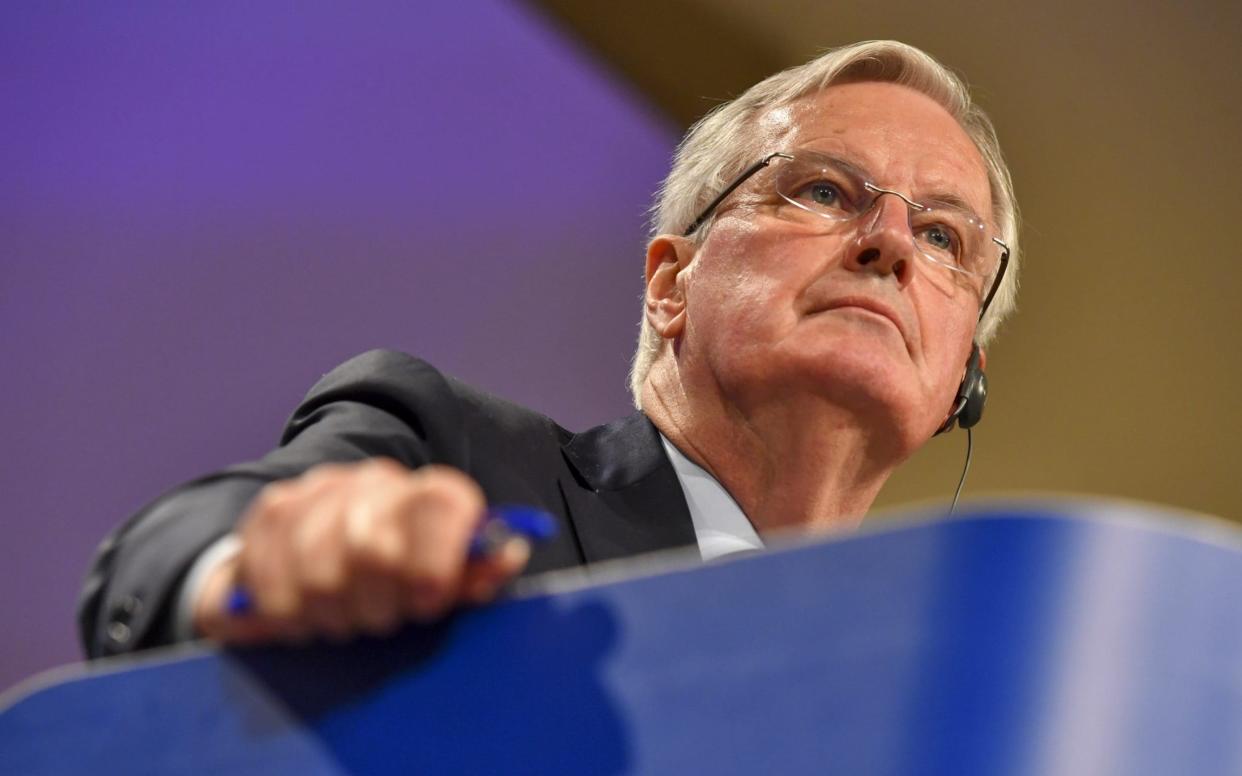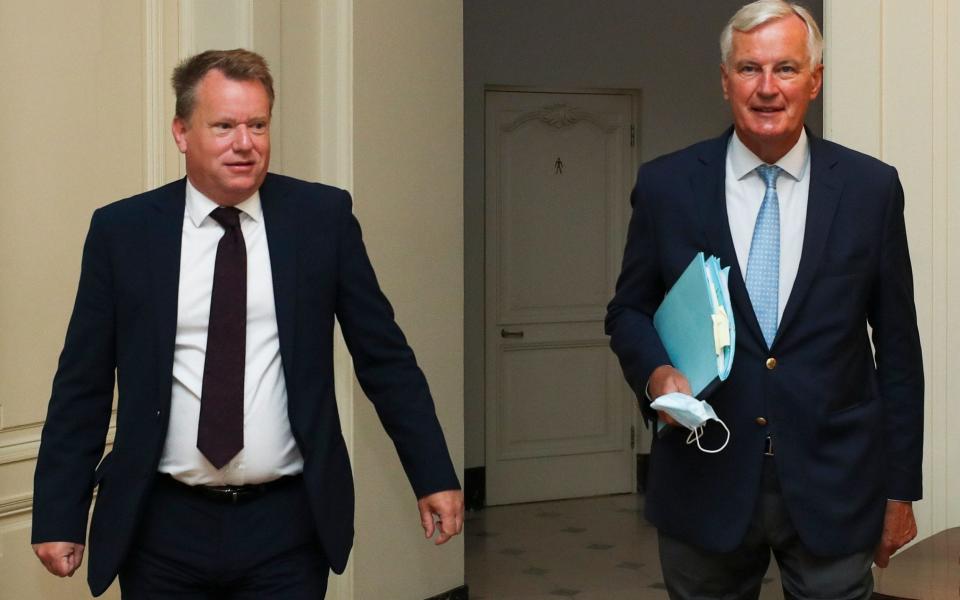Michel Barnier accuses UK of holding EU fishermen hostage in Brexit trade talks

Michel Barnier has wished Britain “good luck” with surviving a no deal Brexit after accusing the UK of holding European Union fishermen hostage in the deadlocked trade talks.
The EU’s chief negotiator said Britain had shown no willingness to compromise over fishing rights and warned that unless the UK caved there would be no trade deal with the EU.
“Obviously the UK will recover the full sovereignty of their waters. No doubt. No question. But it is another thing, another story, speaking about the fish which are inside those waters,” he said before next week’s round of negotiations in London.
Mr Barnier hit back after the Prime Minister’s spokesman blamed Brussels for the lack of progress in last week’s round of negotiations on Wednesday.
“Where the EU has shown openness to possible solutions, the UK has shunned our offers,” Mr Barnier said and insisted the deal had to be ready by the end of October.
He demanded “credible guarantees” from Britain on state aid such as subsidies and that the UK agree to level playing field guarantees in tax, labour rights and the environment.
He said the Government was trying to gain an unfair competitive advantage over EU businesses in sectors such as cars, road haulage, agriculture, manufacturing by undercutting the bloc’s standards.
A UK source said, "Barnier’s speech is a deliberate and misleading caricature of our proposals aimed at deflecting scrutiny from the EU’s own positions which are wholly unrealistic and unprecedented.
"We have been consistently clear that we are seeking a relationship that respects our sovereignty and which has a free trade agreement at its core, similar to those the EU has already agreed with likeminded countries.’
Mr Barnier warned there would be a “huge difference” between striking a trade deal and a no deal exit at the end of the transition period on December 31.
"Sometimes I listen to the UK speaking on the chance of no deal, the reporting of no deal. Good luck. Good luck. But frankly speaking there is no reason to underestimate the consequences for many people,” he said.
No deal would be Britain’s fault because the government had refused to extend the transition period, he said.

Mr Barnier said, “Since the start of these negotiations, the UK has not shown any willingness to seek compromises on fisheries. The UK government's position has not evolved in the past months.”
The French official said that the UK had not tabled any new legal texts on fishing rights. Media reports that he had blocked any discussion on UK “room papers” were “ridiculous” and “contrary to the truth”, he said.
Mr Barnier has signalled that the EU could drop its demand for continued access to UK waters under the same terms as it enjoys under the bloc’s Common Fisheries Policy (CFP)
The UK wants a Norway style fishing deal with annual negotiations over fishing opportunities based on the zonal attachment method rather than the CFP’s historic catch patterns, which disadvantage British fishermen.
“The UK government's position would lock out Ireland's fishermen and women from waters they fished in long before Ireland or the UK joined the European Economic Community in 1973. And of course, the fishermen and women of many other EU countries,” Mr Barnier said.
“That is just not acceptable. We will not accept that the work and the livelihoods of these men and women be used as a bargaining chip in these negotiations," he told the Dublin-based Institute of International and European Affairs.
Mr Barnier called on Britain to back down in the next round of negotiations in London after Brussels said it could accept zonal attachment as one of the factors in dividing fishing opportunities after Brexit.
Mr Barnier, who met David Frost, the UK’s negotiator, on Wednesday, said he still hoped to agree the deal "even if it is very difficult because of the British politicians.”
He said that despite the “current tensions”, he still hoped a deal could be done in time.
"The EU has repeatedly shown flexibility and creativity to work with the UK's red lines - on the role of the European Court of Justice, on preserving the UK's legislative autonomy and on fisheries. It is time for the UK to reciprocate on those issues that are fundamental for the EU," Mr Barnier said.
He added, "I continue to think that Prime Minister Boris Johnson wants an agreement with the EU."
The Prime Minister's spokesman said, "Major difficulties remain. The EU's insistence on progress on state aid and fisheries is an obstacle to making progress overall.
"While an agreement is still possible and is still our goal, it is clear that is not going to be easy to achieve."


 Yahoo News
Yahoo News 
